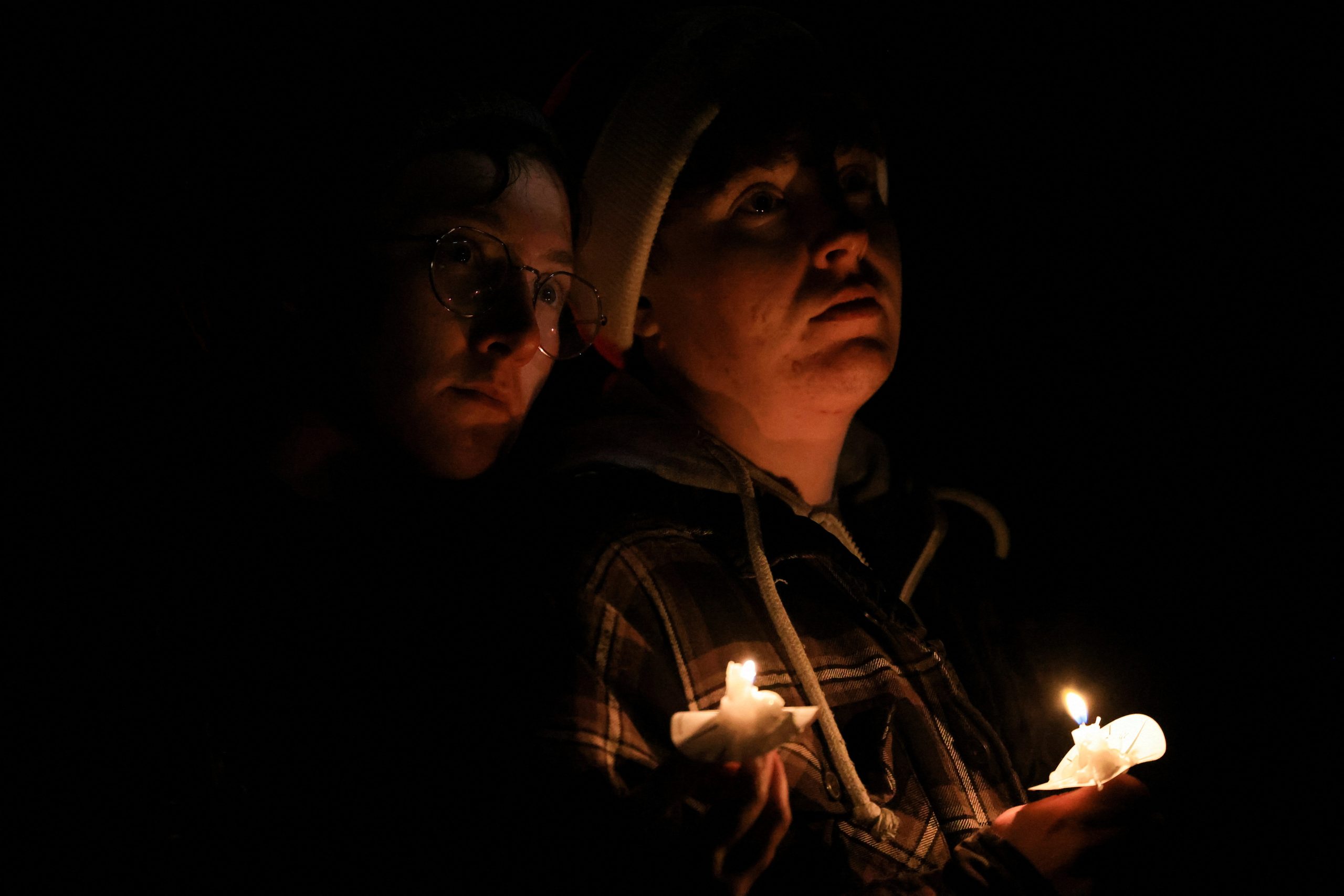
Chris Lange, FISM News
[elfsight_social_share_buttons id=”1″]
Human rights groups, politicians, and LGBTQ activists wasted little time in blaming Saturday’s tragic mass shooting at a gay nightclub in Colorado Springs, Colorado on transphobia, hate speech, anti-LGBTQ legislation, and gun access.
Shortly before midnight on Saturday, a man identified by local authorities as Anderson Lee Aldrich, 22, allegedly opened fire on patrons at the Q Club, described by patrons as an LGBTQ “safe space,” killing five people and injuring at least 25 others before he was subdued by patrons. The massacre occurred on Transgender Day of Remembrance, an annual observance of the lives of transgender people who have been killed by “acts of transgender violence,” according to LGBTQ rights organization GLAAD.
“You can draw a straight line from the false and vile rhetoric about LGBTQ people spread by extremists and amplified across social media, to the nearly 300 anti-LGBTQ bills introduced this year, to the dozens of attacks on our community just like this one,” GLAAD President Sarah Kate Ellis tweeted on Sunday, referring to parental rights legislation in conservative-led states like Florida and Virginia.
“Elected officials and corporate leaders must act immediately to prioritize this truth, and protect everyone’s safety,” she continued.
President Biden acknowledged that the motive for the shooting has not been established but said, “There is no place for violence, hatred, and bigotry in America” in a Transgender Remembrance Day statement released on Sunday.
Biden said that the Club Q attack underscores the fact that “too many LGBTQI+ people in the United States — and around the world — continue to face unconscionable attacks,” adding, “This is especially true for transgender Americans.”
Colorado Springs Mayor John Suthers said that the shooting “has all the appearances of being a hate crime” in an interview with The New York Times.
“America’s toxic mix of bigotry and absurdly easy access to firearms means that such events are all too common,” Kevin Jennings, chief executive of gay rights group Lambda Legal, said in a statement released on Sunday in reaction to the shootings.
Police in Colorado Springs said that the Q Club gunman used a long-range rifle to carry out the attack, adding that other weapons were located at the scene.
Bomb threats, kidnapping, and dropped charges
Buried in the rush to judgment headlines, however, are disturbing details about Aldrich’s background that have come to light in the wake of the shooting that suggest the deadly attack could have possibly been prevented.
Aldrich was arrested in June of 2021 for making a bomb threat against his mother, resulting in the evacuation of 10 nearby residents and a four-hour standoff between Aldrich and police officers. Aldrich was eventually apprehended and booked on two counts of “felony menacing” and three counts of “first-degree kidnapping,” Reuters reported, citing a release from the El Paso County Sheriff’s Office in Colorado Springs.
Sources told CNN, however, that the charges were subsequently dropped, after which Aldrich’s records were sealed without explanation. Since there were no records connecting Aldrich to the bomb threat or any reference to his 2021 arrest, he was subsequently able to pass a background check to purchase two of the firearms discovered at the scene of Saturday’s deadly shooting.
“When I heard it was him who did the shooting, I was surprised but not surprised at the same time — just knowing what he did before,” Leslie Bowman, who owned the property rented by Aldrich’s mother at the time of the bomb threat, told Reuters in a phone interview on Monday.
Colorado passed controversial red flag gun legislation in 2019 that allows judges to confiscate legally purchased firearms from citizens based on “risk” reports made by family members, roommates, or law enforcement.
Democratic Attorney General Phil Weiser, who made no mention of the dropped charges against Aldrich, was asked why the red flag law wasn’t used in Aldrich’s case. He replied that it was “too early to make any decisions” about the incident.
“We are working hard to educate and to bring more awareness about the red flag law,” Weiser said. “When law enforcement don’t use this tool, it’s not going to perform its function.”
